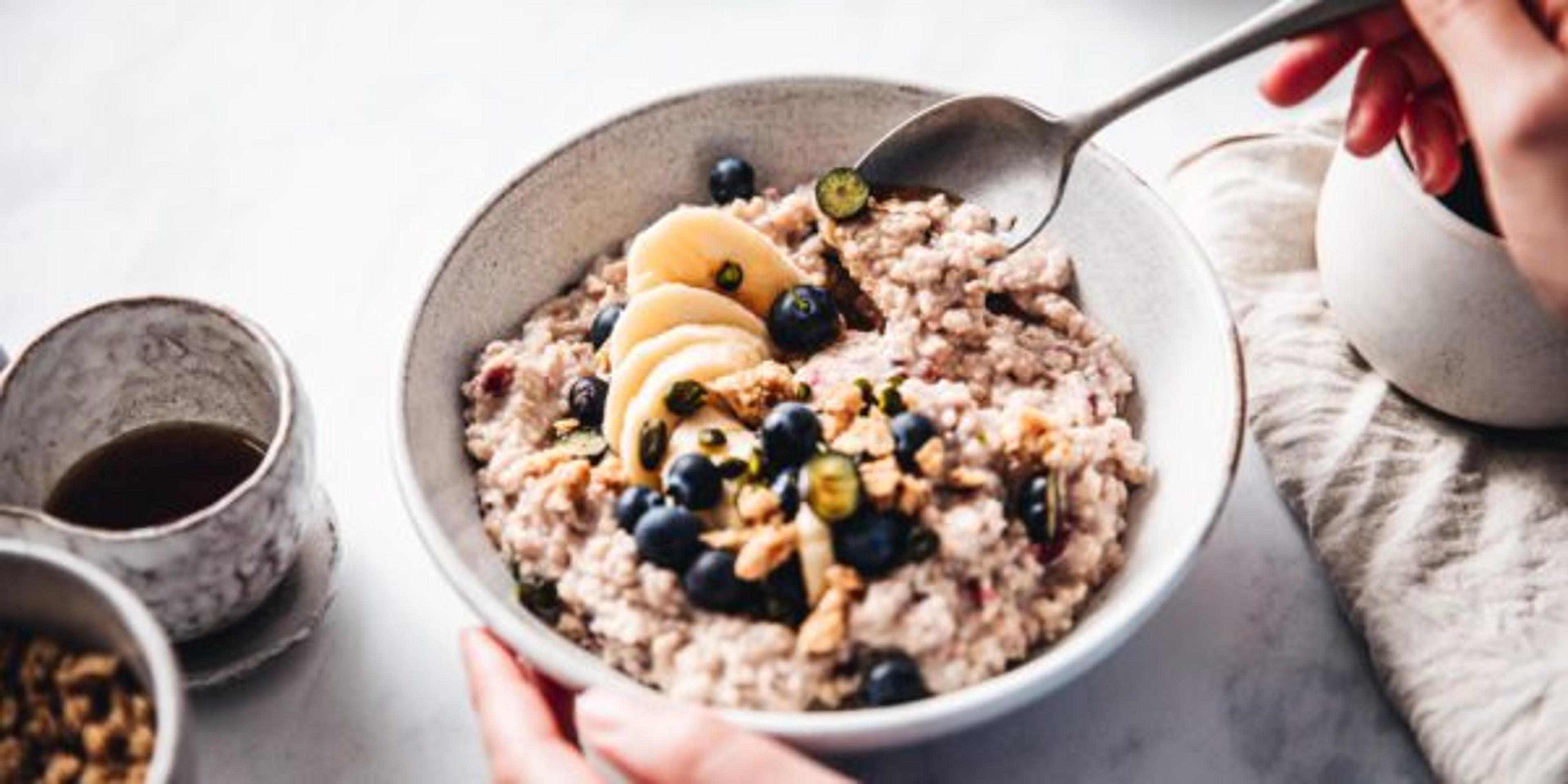The Importance of a Good Breakfast
| 5 min read

You heard it as a kid and you hear it now: “Breakfast is the most important meal of the day.”
That saying is a saying for a reason; breakfast is important. Let’s walk through why that is and share some great breakfast ideas along the way.
Metabolism Booster
Breakfast is important because it does just that. It “breaks” the “fast” from your sleep. In other words, it helps kick-start your metabolism daily. This will help you lose weight or maintain your current weight, not to mention just keep you healthier in general. If you skip breakfast, you throw your body into starvation mode. This process actually slows down your metabolism and does not allow you to lose weight and may even cause you to gain weight.
For example, if you ate dinner at 7 p.m. the night before, then you skip breakfast and go through your work day without eating lunch until noon, your body is now confused because you have been awake since 7am, got ready for work, drove to work and have been working without any fuel. So when you do eat lunch at noon, your body will hold on to those calories without letting them burn naturally. Now, your body fears that you will go 17 hours without eating again.
Even if you seem to feel hungry soon after eating breakfast that just means your metabolism is working. Remember your body only knows what you actually do to it, not your thoughts or best intentions. Your body, energy level and metabolism will thank you for eating breakfast.
Timing is Key
Breakfast should ideally be eaten within two hours from when you wake up. From there you want to eat every three-to-four hours to keep that metabolism moving and to give your body and brain energy to work as effectively and efficiently as possible. When you go too long without eating, not only do you slow down your metabolism, but you also are not at your best. You need energy and fuel from food. It will keep you sharper, smarter and more productive throughout the day.
How do you feel when you go too long without eating? A lot of people become tired, lethargic and overall groggy and grouchy. One popular term to describe this is “hangry.” Time meals and snacks better throughout the day to avoid this hangry feeling. And don’t forget to keep portions in check when you are eating with a proper time schedule, so you do not overeat.
Your Breakfast Questions Answered
You probably have people in your life that just aren’t breakfast people. “I am not hungry in the morning,” is a commonly-uttered phrase. You may not be a breakfast person, but you should at least eat something in the morning to kickstart your day. After all, doing so helps metabolism, energy, and overall health and productivity throughout the day.
One common breakfast-related question is: “What should I eat for breakfast?” This answer is simple: anything you want. Your breakfast does not need to be the typical breakfast food. The goal is to keep the portions controlled and try to pick more nutritious options. There is different research and debate. Some say you must have protein, others say have carbs, others say fiber. Any of these can be correct.
Some research stresses the importance of having protein at breakfast. This is because protein and fat digest more slowly than carbohydrates. Therefore it helps most people feel full longer. Remember, most protein sources are also fat sources. So, you have to be careful in regards to calories, fat and saturated fat when choosing food sources like eggs, bacon, ham, sausage and other proteins. Try choosing low-fat and low-sodium options for your protein.
When choosing carbohydrates, since they digest more quickly, you want to choose a fiber-rich grain. Fiber also has the ability to slow down the digestive process to help keep you full longer. It is also good for the gastrointestinal tract by keeping you regular and healthy.
The dietary goal for fiber is 25 to 35 grams per day. The average American usually gets only 5 to 10 grams of fiber today. When choosing your favorite carb-filled foods, such as oatmeal, whole grains or whole wheat bread, cereal or cereal type bars, make sure they have at least three grams of fiber in a serving.
Grab and Go Ideas
One common breakfast complaint we hear is, “I don’t have time for breakfast.” It’s easy to feel pressed for time in the morning, at which point breakfast gets squeezed out of your morning routine. That’s why it’s important to lean on quick, easy grab-and-go foods chockful of a variety of nutrients.
- Hard boiled egg: Whether you keep the yolk or not, this is a great option. Remember, the yolk does carry antioxidants, but it does have fat, saturated fat and cholesterol. Also, be careful if you like to salt your hard-boiled egg, one teaspoon of regular table salt already has 2300mg of sodium, which is the maximum amount recommended to have daily by the Dietary Guidelines for Americans.
- Low-fat yogurt: It can be any kind you want, with fruit, without fruit, Greek yogurt or any brand; just be sure it is not using whole milk as it’s base. This will make it full of fat, saturated fat and calories.
- Fruit: You can never go wrong with grabbing a piece of nature’s fast food, filled with vitamins, minerals, antioxidants and fiber. It’s better to eat actual fruit and drink water, rather than drinking juice.
- High fiber cereal bar: When choosing one of these, you want some protein and fiber. Make sure it is lower in fat and calories.
- Low-fat cheese: This will add some protein and a little fat to your breakfast choice. Light string cheeses and wedge cheese brands are a great fit when you’re on the go.
Read more:
Photo Credit: Getty Images





